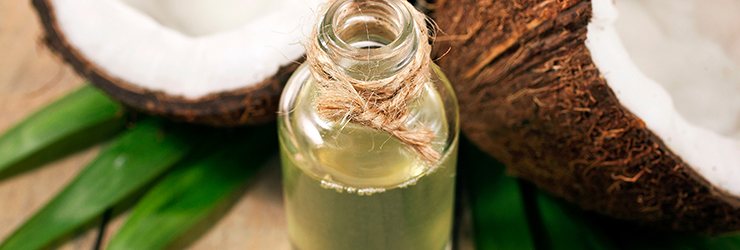The health of our teeth and gums reflects the health of our entire body. A good oral hygiene routine and daily flossing is a great way to keep teeth healthy, however this is just the start. True oral health begins with proper nutrition and diet.
September 9, 2019
We have put together 15 ways to strengthen teeth in order to prevent future cavities and decay.
Oil pulling is where a high-quality edible oil (e.g. coconut oil) is swished around the mouth for 20 minutes. This process helps to keep teeth clean and remove built-up plaque. Oil pulling additionally removes bacteria from the mouth and stops it from sticking back onto the teeth.
When bacteria are left on teeth, the acid they produce corrodes the surface enamel, exposing the vulnerable dentin layer underneath. Keep your teeth strong by maintaining a regular oil pulling routine.

Snacking on carbs during the day provides the bacteria in our mouths with a consistent supply of food. Well-fed bacteria will produce more acid which in turn weakens tooth enamel. As well, it is good to give our digestive systems time to break and rejuvenate.
If you need to snack, make sure it is carb-free or rinse your mouth with water after eating. This should help dilute the sugar and help the saliva buffer the acids.
Teeth are porous in nature and they can gain or lose beneficial minerals. The key is to ensure they are receiving more minerals than they lose. This process is called remineralisation.
Brushing and flossing teeth helps to remove plaque; however, it does not aid nor inhibit remineralisation. In order to keep teeth strong, you will need to eat a diet rich in minerals.
Mineral-rich foods: (chose organic sources where possible)
Sugar is the main food source for bacteria that produce harmful acid on our teeth. As well it is undoubtedly a contributing factor to many health problems including diabetes, heart disease and cancer.
Eliminating refined sugar from your diet will help to drastically reduce bacteria’s food supply. In turn, this will protect your teeth from the damaging acid bacteria produce.
In short, grains, nuts and seeds contain a substance called phytic acid, which impairs the absorption of the beneficial minerals zinc, iron and calcium. If you must eat grains, it may be less harmful to eat them after they are fermented.
Keeping your tongue clean by brushing it well during your oral hygiene routine is a great way to reduce bacteria. Additionally, you may notice fresher breath and an overall cleaner feeling.
Foods high in vitamins A, D, E, and K2 are known to improve the health of teeth. Vitamin D aids the absorption of calcium and phosphorus. While K2 ensures calcium goes to our teeth and bones.
Be careful of taking supplements with large doses of fat-soluble vitamins as this can cause toxicity. Please review recommended dosages guidelines.

If your gut health is out of whack, it can hinder the absorption of minerals and nutrients. You may be eating the correct foods, but if they are not properly absorbed, remineralisation of your teeth can not occur.
Stress, certain medications, amalgam fillings, alcohol, parasites and processed foods can negatively affect absorption.
Try eating healthy fats with each meal to increase absorption of vitamins A, D, E, and K. As well, take a probiotic supplement or eat probiotic-rich foods such as sauerkraut, kimchi, yogurt, pickles or kombucha.
Drinking water helps to flush away food debris and bacteria from teeth and gums. It also helps dilute harmful acid caused by bacteria in the mouth.
Dry mouth likewise can put your teeth at risk of tooth decay. Drinking water helps to promote saliva production, which keeps teeth strong by washing them with beneficial minerals.

Fluoride is a harmful chemical that can cause fluorosis as well as several adverse side effects. You can learn more about the effects in our 7 toothpaste ingredients you should avoid article.
Likewise, avoid toothpaste with whitening agents as they can be abrasive on teeth. If you are looking for a whiter smile, ask our team about our tooth-friendly whitening treatments.
Sugar-free gum promotes the production of saliva which is full of teeth strengthening minerals. If you suffer from dry mouth, gum is a great way to increase saliva and promote healthy teeth.
Moreover, after meals or snacks when brushing your teeth is not an available option, gum makes for a great substitute. This is because chewing gum will increase salivary flow which will dilute the acids and aid in the removal of food debris and bacteria from the teeth and gums.
Severe heartburn and reflux can bring acid to your mouth, damaging tooth enamel. See your doctor and treat any gastrointestinal conditions.
Teeth grinding usually occurs on a subconscious level where the teeth become clenched or ground together. This process can happen during sleep or while awake, and it wears down or fractures the tooth’s enamel.
If you notice you have a consistent jaw ache, facial pain or worn-down teeth, consult a dentist.
Brushing twice daily for 2 minutes and flossing once daily can strengthen your teeth. Brushing regularly helps remove built-up plaque and bacteria from teeth.

Seeing the dentist every 6 months helps to keep your teeth and gums strong. Your dentist can identify areas that may need improvement as well as detect diseases early.
Moreover, the dentist can remove substances like tartar from teeth that brushing alone can not remove.
Is it time for your 6-monthly check-up and clean? Contact our practice today for a holistic approach to dentistry.
